CHAPTER I
您可以在百度里搜索“Now It Can Be Told 艾草文学(www.321553.xyz)”查找最新章节!
PART SEVEN.
THE FIELDS OF ARMAGEDDON
CHAPTER I
During the two years that followed the battles of the Somme I recorded in my daily despatches, republished in book form (“The Struggle in Flanders” and “The Way to Victory”), the narrative of that continuous conflict in which the British forces on the western front were at death-grips with the German monster where now one side and then the other heaved themselves upon their adversary and struggled for the knock-out blow, until at last, after staggering losses on both sides, the enemy was broken to bits in the last combined attack by British, Belgian, French, and American armies. There is no need for me to retell all that history in detail, and I am glad to know that there is nothing I need alter in the record of events which I wrote as they happened, because they have not been falsified by any new evidence; and those detailed descriptions of mine stand true in fact and in the emotion of the hours that passed, while masses of men were slaughtered in the fields of Armageddon.
But now, looking back upon those last two years of the war as an eye-witness of many tragic and heroic things, I see the frightful drama of them as a whole and as one act was related to another, and as the plot which seemed so tangled and confused, led by inevitable stages, not under the control of any field-marshal or chief of staff, to the climax in which empires crashed and exhausted nations looked round upon the ruin which followed defeat and victory. I see also, as in one picture, the colossal scale of that human struggle in that Armageddon of our civilization, which at the time one reckoned only by each day's success or failure, each day's slaughter on that side or the other. One may add up the whole sum according to the bookkeeping of Fate, by double-entry, credit and debit, profit and loss. One may set our attacks in the battles of Flanders against the strength of the German defense, and say our losses of three to one (as Ludendorff reckons them, and as many of us guessed) were in our favor, because we could afford the difference of exchange and the enemy could not put so many human counters into the pool for the final “kitty” in this gamble with life and death. One may balance the German offensive in March of '18 with the weight that was piling up against them by the entry of the Americans. One may also see now, very clearly, the paramount importance of the human factor in this arithmetic of war, the morale of men being of greater influence than generalship, though dependent on it, the spirit of peoples being as vital to success as the mechanical efficiency of the war-machine; and above all, one is now able to observe how each side blundered on in a blind, desperate way, sacrificing masses of human life without a clear vision of the consequences, until at last one side blundered more than another and was lost. It will be impossible to pretend in history that our High Command, or any other, foresaw the thread of plot as it was unraveled to the end, and so arranged its plan that events happened according to design. The events of March, 1918, were not foreseen nor prevented by French or British. The ability of our generals was not imaginative nor inventive, but limited to the piling up of men and munitions, always more men and more munitions, against positions of enormous strength and overcoming obstacles by sheer weight of flesh and blood and high explosives. They were not cunning so far as I could see, nor in the judgment of the men under their command, but simple and straightforward gentlemen who said “once more unto the breach,” and sent up new battering-rams by brigades and divisions. There was no evidence that I could find of high directing brains choosing the weakest spot in the enemy's armor and piercing it with a sharp sword, or avoiding a direct assault against the enemy's most formidable positions and leaping upon him from some unguarded way. Perhaps that was impossible in the conditions of modern warfare and the limitations of the British front until the arrival of the tanks, which, for a long time, were wasted in the impassable bogs of Flanders, where their steel skeletons still lie rusting as a proof of heroic efforts vainly used. Possible or not, and rare genius alone could prove it one way or another, it appeared to the onlooker, as well as to the soldier who carried out commands that our method of warfare was to search the map for a place which was strongest in the enemy's lines, most difficult to attack, most powerfully defended, and then after due advertisement, not to take an unfair advantage of the enemy, to launch the assault. That had always been the English way and that was our way in many battles of the great war, which were won (unless they were lost) by the sheer valor of men who at great cost smashed their way through all obstructions.
The Germans, on the whole, showed more original genius in military science, varying their methods of attack and defense according to circumstances, building trenches and dugouts which we never equaled; inventing the concrete blockhouse or “pill-box” for a forward defensive zone thinly held in advance of the main battle zone, in order to lessen their slaughter under the weight of our gun-fire (it cost us dearly for a time); scattering their men in organized shell-craters in order to distract our barrage fire; using the “elastic system of defense” with frightful success against Nivelle's attack in the Champagne; creating the system of assault of “infiltration” which broke the Italian lines at Caporetto in 1917 and ours and the French in 1918. Against all that we may set only our tanks, which in the end led the way to victory, but the German High Command blundered atrociously in all the larger calculations of war, so that they brought about the doom of their empire by a series of acts which would seem deliberate if we had not known that they were merely blind. With a folly that still seems incredible, they took the risk of adding the greatest power in the world—in numbers of men and in potential energy—to their list of enemies at a time when their own man-power was on the wane. With deliberate arrogance they flouted the United States and forced her to declare war. Their temptation, of course, was great. The British naval blockade was causing severe suffering by food shortage to the German people and denying them access to raw material which they needed for the machinery of war.
The submarine campaign, ruthlessly carried out, would and did inflict immense damage upon British and Allied shipping, and was a deadly menace to England. But German calculations were utterly wrong, as Ludendorff in his Memoirs now admits, in estimating the amount of time needed to break her bonds by submarine warfare before America could send over great armies to Europe. The German war lords were wrong again in underestimating the defensive and offensive success of the British navy and mercantile marine against submarine activities. By those miscalculations they lost the war in the long run, and by other errors they made their loss more certain.
One mistake they made was their utter callousness regarding the psychology and temper of their soldiers and civilian population. They put a greater strain upon them than human nature could bear, and by driving their fighting-men into one shambles after another, while they doped their people with false promises which were never fulfilled, they sowed the seeds of revolt and despair which finally launched them into gulfs of ruin. I have read nothing more horrible than the cold-blooded cruelty of Ludendorff's Memoirs, in which, without any attempt at self-excuse, he reveals himself as using the lives of millions of men upon a gambling chance of victory with the hazards weighted against him, as he admits. Writing of January, 1917, he says: “A collapse on the part of Russia was by no means to be contemplated and was, indeed, not reckoned upon by any one... Failing the U-boat campaign we reckoned with the collapse of the Quadruple Alliance during 1917.” Yet with that enormous risk visible ahead, Ludendorff continued to play the grand jeu, the great game, and did not advise any surrender of imperial ambitions in order to obtain a peace for his people, and was furious with the Majority party in the Reichstag for preparing a peace resolution. The collapse of Russia inspired him with new hopes of victory in the west, and again he prepared to sacrifice masses of men in the slaughter-fields. But he blundered again, and this time fatally. His time-table was out of gear. The U—boat war had failed. American manhood was pouring into France, and German soldiers on the Russian front had been infected with ideas most dangerous to German discipline and the “will to win.” At the end, as at the beginning, the German war lords failed to understand the psychology of human nature as they had failed to understand the spirit of France, of Belgium, of Great Britain, and of America. One of the most important admissions in history is made by Ludendorff when he writes:
“Looking back, I say our decline began clearly with the outbreak of the revolution in Russia. On the one side the government was dominated by the fear that the infection would spread, and on the other by the feeling of their helplessness to instil fresh strength into the masses of the people and to strengthen their warlike ardor, waning as it was through a combination of innumerable circumstances.”
So the web of fate was spun, and men who thought they were directing the destiny of the world were merely caught in those woven threads like puppets tied to strings and made to dance. It was the old Dance of Death which has happened before in the folly of mankind. Now It Can Be Told




